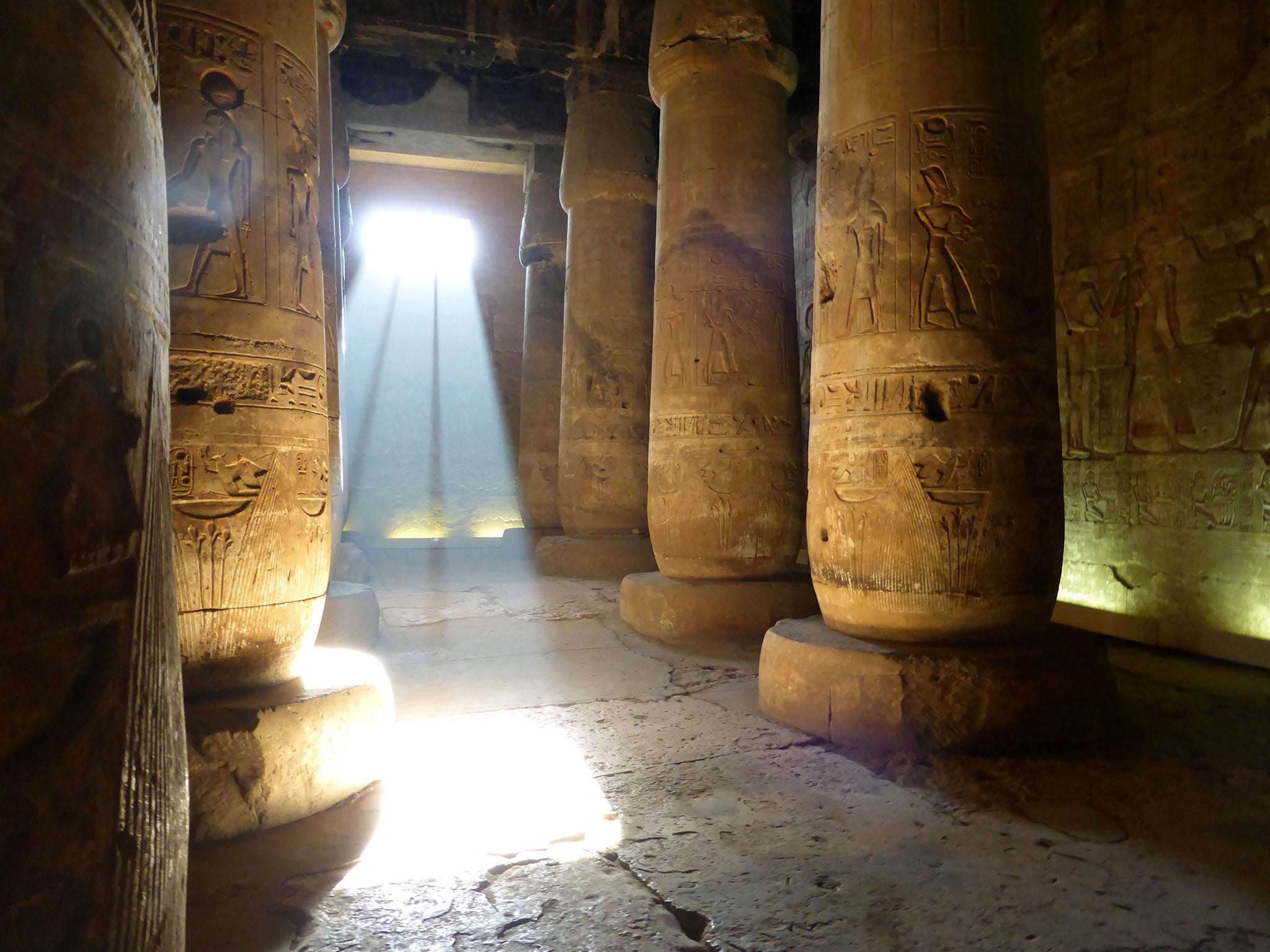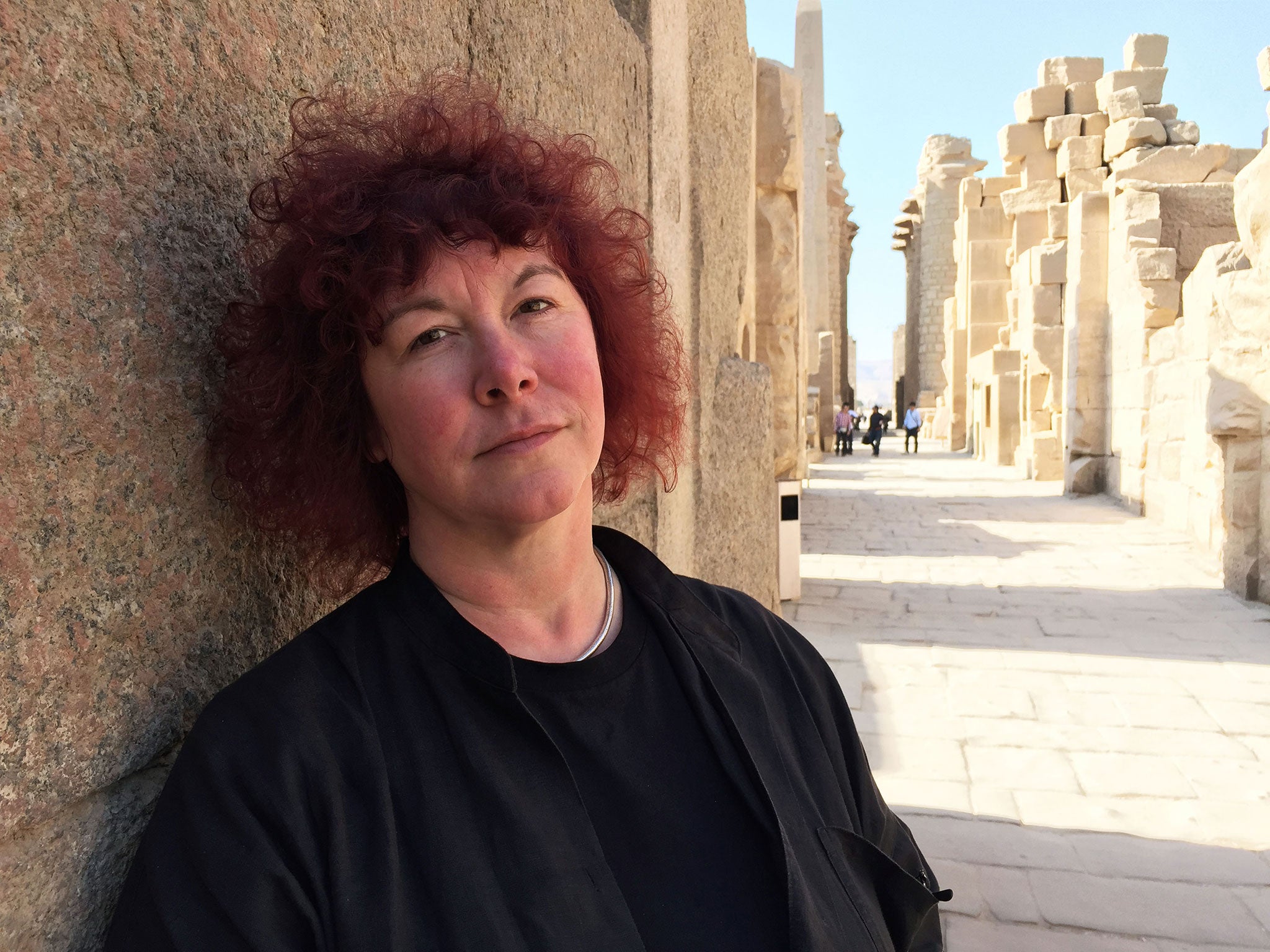Egypt: BBC expert urges British tourists to return to land of the pharaohs
Egyptologist Joann Fletcher hopes her four-part BB2 series will help reverse decline caused by terror threats and unrest

Your support helps us to tell the story
From reproductive rights to climate change to Big Tech, The Independent is on the ground when the story is developing. Whether it's investigating the financials of Elon Musk's pro-Trump PAC or producing our latest documentary, 'The A Word', which shines a light on the American women fighting for reproductive rights, we know how important it is to parse out the facts from the messaging.
At such a critical moment in US history, we need reporters on the ground. Your donation allows us to keep sending journalists to speak to both sides of the story.
The Independent is trusted by Americans across the entire political spectrum. And unlike many other quality news outlets, we choose not to lock Americans out of our reporting and analysis with paywalls. We believe quality journalism should be available to everyone, paid for by those who can afford it.
Your support makes all the difference.The BBC’s leading Egyptologist has called on the British public to continue visiting the land of the pharaohs after a sharp decline in tourist numbers to ancient sites following terror threats and political upheaval in the North African state.
Joann Fletcher, who recently concluded a year of filming in Egypt and Sudan for a new four-part BBC2 series, said she hoped the programme’s revelations of “new discoveries” would “help bring tourists back”.
Egypt’s tourism ministry revealed this month that visitor numbers had plummeted from 17 million to 9 million this year. Current Foreign Office advice warns of “a high threat from terrorism” and advises against all travel to North Sinai and all but essential travel to South Sinai and west of the Nile Valley. Travel advice should be taken before visiting Giza or Luxor, home to the most important ancient sites. Professor Fletcher said: “I often get asked ‘is it safe to go to Egypt?’ and I say ‘a weekend in Paris isn’t exactly safe.’ I would love for them to go out. None of us can guarantee our safety on planet earth – it all has to be put into context.”
The Yorkshire historian said she hoped the BBC project, Immortal Egypt with Joann Fletcher, which begins on 4 January, would “work hand in hand with the Egyptian authorities” in luring visitors back to the Pyramids and the Valley of the Kings.
“The Egyptians are fiercely proud of their heritage and during the 2011 [Arab Spring] revolution I can remember the people making a human barricade around the [Egyptian Museum of Antiquities]. They are so passionate about it.”

A recent #ThisIsEgypt online tourism campaign was hijacked by protesters complaining about Egypt’s human rights record under President Abdel Fattah el-Sisi. But Professor Fletcher said the country had a new stability. “With the very strong government that Egypt now has I always felt completely safe. I never felt in any danger.” She said that although “there was some difficulty” in protecting the ancient sites in the wake of the fall of the Hosni Mubarak regime in 2011, the monuments were much more secure.
The BBC2 series was granted unprecedented access to the spectacular mortuary temple of Pharaoh Amenhotep III, which Professor Fletcher predicted would come to rival the Valley of the Kings as a visitor attraction. “It will be the jewel in the crown of Luxor,” she said.
The temple of Amenhotep, grandfather of Tutankhamen, is being slowly recovered from the desert sands near to the two 18-metre high Colossi of Memnon statues. Two other huge, striding statues of the Pharaoh have already been rebuilt. “This is the thrill of the ancient being resurrected in front of our eyes,” said the historian. “Give it ten years and it will be just mind-blowing.”
Other revelations in the BBC series – giving fresh insights into burial and mummification techniques – were made by examining collections of Egyptian artefacts held by British museums. Professor Fletcher, who is based at the University of York, said there were at least 200 important collections in Britain. Carbon dating of a toffee-like substance used in mummy wrappings held by Bolton Museum was used by historians from York, Oxford and Macquarie (Sydney) universities last year to show that the Egyptians were using mummification methods by at least 4300 BC, 2,000 years earlier than previously thought.
“It turned out to be largely a coniferous tree resin employed to coat the body and the wrappings,” said Professor Fletcher. “It has an anti-bacterial quality but was not native to Egypt and they were importing it to better preserve their dead.”
For almost a century, Wigan museum was holding an Egyptian collection which was found last year to contain “an absolutely spectacular gilded coffin face of a lady from the 18th Dynasty”. The artefact, almost contemporaneous with Tutankhamen, was “a privilege to hold”, said the historian.
Subscribe to Independent Premium to bookmark this article
Want to bookmark your favourite articles and stories to read or reference later? Start your Independent Premium subscription today.
Join our commenting forum
Join thought-provoking conversations, follow other Independent readers and see their replies
Comments